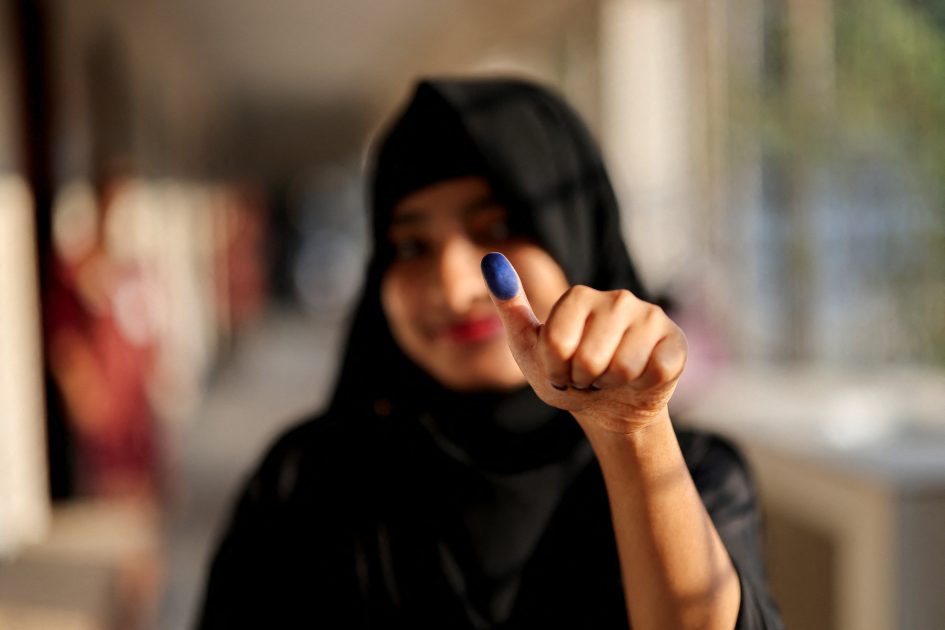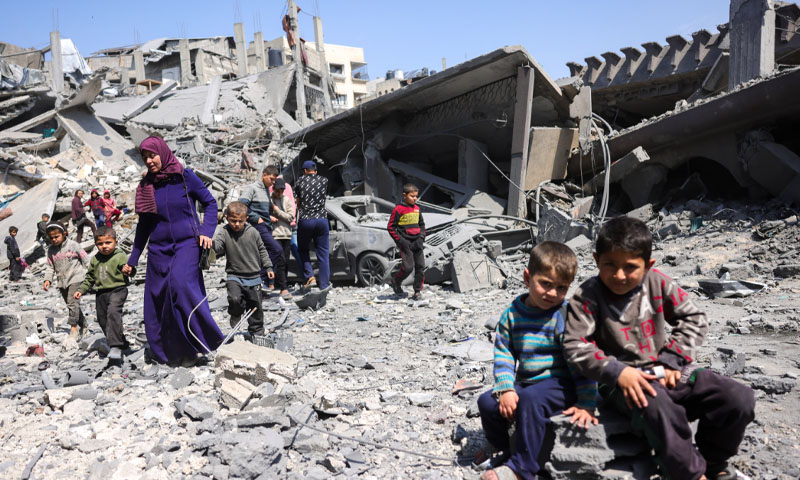- Web Desk
- Yesterday
Wishing the climate crisis away: denial won’t lower temperatures
Last week, one of the biggest auditoriums in the federal capital could have buzzed with the passion and energy to fight climate change.
Instead, it echoed a silence that screamed the blatant disinterest of politicians and public alike. Sure, one could ask the organisers to shoulder the blame to some extent – perhaps climate disasters are best talked about in cramped rooms, where whispers suffice without the need for microphones. But that argument would only hold water once people actually bothered to show up to the venue to find no breakout rooms. You cannot fault the location when no one crossed the threshold.
The venue wasn’t the problem — the sheer apathy was.
Jinnah Convention Centre in the heart of Islamabad looks like a parliament, complete with its amphitheater features and gigantic screens. Last Thursday and Friday, it could also have been the house for Pakistan’s energy and climate resolutions as well. However, the final moment cancelations from the Prime Minister’s office, Foreign Minister’s office and Punjab Chief Minister’s office reduced the event to a mere gathering of activists and journalists that could at best lament the government’s disinterest and try to ignite a spark of urgency among the attendees for a desperate need to control the planet’s relentless overheating.
So much was said during the ‘Breathe Pakistan’ conference, organised by Dawn Media, the parent organisation of Dawn Group of Newspapers. The World Bank representative tried to jolt Pakistanis into a realisation that no messiah carrying bags of money is coming to save their country. The UN Resident and Humanitarian Coordinator did his best to tell people that it is not a matter of charity, rather discipline and self-reflection to stop 2022 floods from happening all over again. Journalists from India, Nepal, Bangladesh and the United Kingdom spoke up on the urgency of pulling out climate discussions from a crisis reporting practice to an awareness building campaign. But there were only so many people to listen to all of it, and even fewer to pay any heed to anything that was being said.
Utterances going around the convention centre during tea breaks and lunch times – ironically the loudest times during the conference – sounded like this, “the situation isn’t that bad, it’s all being done for foreign funding”, and “SDPI just organised one of these conferences, why was there a need for another one?”
Situation isn’t that bad?
2024 saw unprecedented global temperatures – the record breaking year, right after the record breaking 2023. It was also the first year when the average global temperature increase was more than 1.5°C above the pre-industrial level – a threshold set by the Paris Agreement. Greenhouse gas levels have increased above all previous records and a lot of this impact was tangibly seen – fires, floods, droughts and heatwaves. Pakistan felt the impact right here at home.
If these figures are too alien, then let’s look at some other numbers.
Pakistan has already suffered a USD100 billion loss due to climate change. This may be equal to 25,000 fully equipped hospitals, each capable of serving thousands of patients annually. Or over 300,000 modern government schools, revolutionising education access across urban and rural areas. Or in terms of infrastructure, it could be hundreds of miles of new motorways. If this amount was distributed to individual households that would be PKR800,000 per house – a life-changing amount for millions living below the poverty line. This is how much we could have had if we were not this severely impacted by the climate change. And this is getting worse. Every year.
For now, climate change seems to be preying upon the low-income, vulnerable populations, but soon enough, it won’t discriminate. And when that time comes, no amount of money, no last minute action will be enough to save us.
So far the disasters caused by climate change are amounting to eight percent of the country’s GDP, which is projected to increase to 30 percent by 2050. This means less food, less water, less electricity, more heat, more intense winters, more floods, more landslides, more death – and less and less resources to deal with all of this.
The figures for solarisation in Pakistan are encouraging – but only when viewed in isolation.
When seen as part of the overall energy mix of the country, the increase in ‘rich people and industry’ opting for solar power bypassing the grid is only adding more and more financial burden on the poorer consumers. Higher electricity bills are necessary to sustain the network of grid station and the transmission lines. Meanwhile, the surge in solar panel imports has yet to alter the government’s stubborn commitment to hydropower projects, which are still going full steam ahead despite the bells tolling over severe water scarcity being just around the corner. Pakistan is predicted to become water scarce by 2050!
The utter denial to these realities is a dangerous trend. Climate change, despite its alarming acceleration, lacks the kind of immediate political returns that other issues provide. Building green infrastructure or transitioning to renewable energy takes years to yield visible results, which makes it difficult to claim credit for it in the next upcoming election cycle. So one might argue that it makes sense for politicians driven by short-term wins to relegate climate issues to the sidelines.
Why was another conference needed?
Considering that despite everything that was discussed at the Sustainable Development Conference in November 2024 still failed to bring the politicians and the civil society on board in Breathe Pakistan Conference itself is a reason why this and so many more such events are needed.
Hardly anyone from the ruling government showed up at the latest event, and even those who did seemed to be pandering to the optics and ‘voter spirit’ with rhetoric. Platitudes about “sustainable futures” and “green economies” flowed freely, yet substantive commitments remained conspicuously absent. A lot more infuriating was the lack of participation from the public and so-called celebrities, who graced the event only long enough to deliver their self-serving soundbites before vanishing without a shred of interest in the broader theme.
The closing comments by Himal Southasian founder Kanak Mani Dixit felt more heartbreaking than celebratory, “Let me compliment the audience because this audience is nothing if not steadfast. You stayed on all these hours mainly because you understand the gravity of the issue,” — a tribute not to numbers but to the dwindling few who grasped the weight of a crisis most chose to ignore.
I, you, we all are responsible for it!
As a journalist myself, I refuse to end this tirade without calling out my fellow journalists’ appalling dereliction of duty. We take pride in being the mind shapers of our nation, yet when the planet is gasping for breath and our own country is burning, we are busy in reporting political gossip and celebrity scandals. Our willful failure to cover climate change unless it’s a crisis-driven, shock-value story is tantamount to betrayal of journalism itself. Often backed by some interest group, some journalists themselves still adhere to the misconception of climate change being a concoction of leftist ideology or a ploy for funding.
These narratives are not just irresponsible; they are dangerous.
This lack of interest by the media – publications and telecasts – on climate not only reduce public interest and confidence in meaningful action, but it also maintains the status quo as is, much to the detriment of our own future. Dismissing the calls for action as a hoax absolves our own conscience of the responsibility and protects us – and our audiences – from facing the harsh reality that time isn’t just running out; it’s already gone!
Floods, droughts, wildfires, and heatwaves are no longer ‘likely’, they are a guaranteed certainty. Catastrophic events won’t be a shock event in Pakistan anymore, they will be routine – just like Punjab’s smog, Sindh’s heatwaves, Balochistan’s floods and KP’s glacial melts are.
For now, climate change seems to be preying upon the low-income, vulnerable populations, but soon enough, it won’t discriminate. And when that time comes, no amount of money, no last minute action will be enough to save us.






